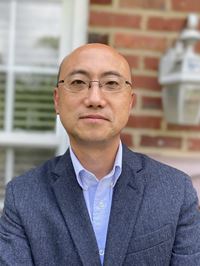 |
| Jian Huang, PhD |
The National Heart, Lung, and Blood Institute (NHLBI) has awarded a Coriell Institute for Medical Research scientist a grant to investigate the basic function of the class of stem cells that give rise to the various blood cells in hopes of improving stem cell and bone marrow transplants. This award is valued at about $2.5 million and will support this work for four years.
Jian Huang, MD, PhD, an Associate Professor and Senior Scientist for Stem Cell Biology and Gene Engineering at Coriell, is the recipient of this NHLBI grant and his lab at Coriell will conduct the research.
Dr. Huang’s team will focus their research on the role played by an enzyme named glycogen synthase kinase 3 (or GSK3). Previous research published by Dr. Huang’s team has demonstrated GSK3’s importance in regulating the regeneration of hematopoietic stem cells (HSCs), a type stem cell that can differentiate into the various types of blood cells found in the human body.
GSK3 is also important in the regulation of mitophagy, the selective degradation of mitochondria by autophagy, in these stem cells and Dr. Huang suggests PPAR-δ/mitophagy signaling pathway might mediates the regulatory effect of GSK3 on HSCs.
“Stem cell and bone marrow transplants are powerful therapeutic options in treating many forms of blood cancer, but, unfortunately, this treatment is not successful for many patients,” Dr. Huang said. “The knowledge gained through this research holds the promise to make these transplants more available and more successful for patients.”
Dr. Huang received a separate grant from the NCI earlier this year to study drug resistance in patients suffering from acute myeloid leukemia (AML), a form of leukemia which arises from bone marrow tissue.